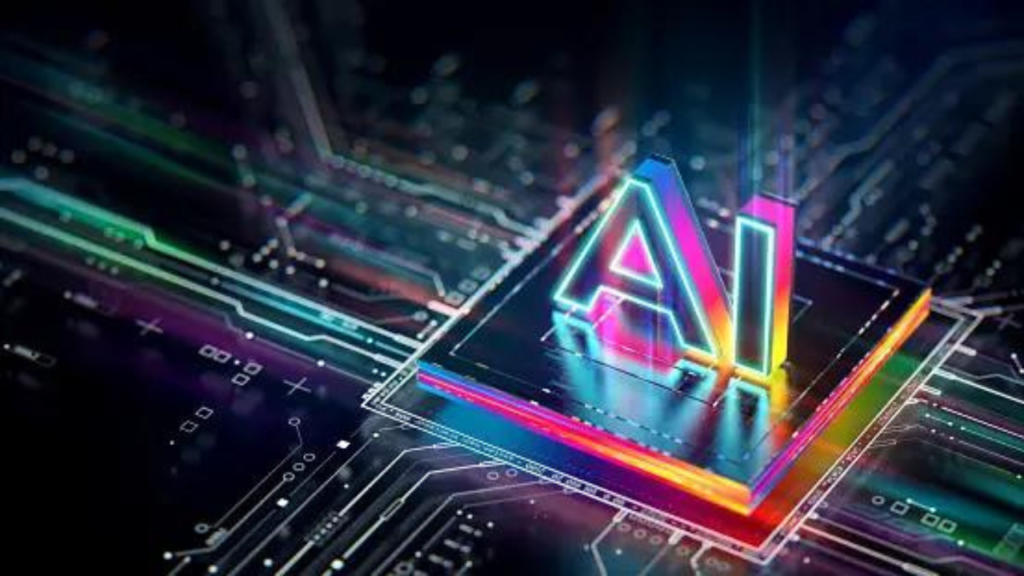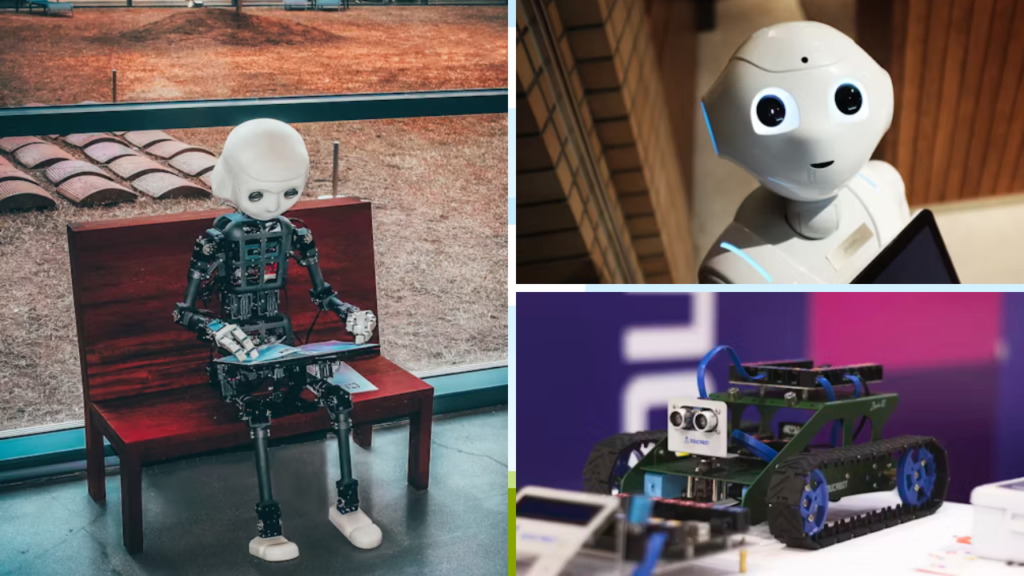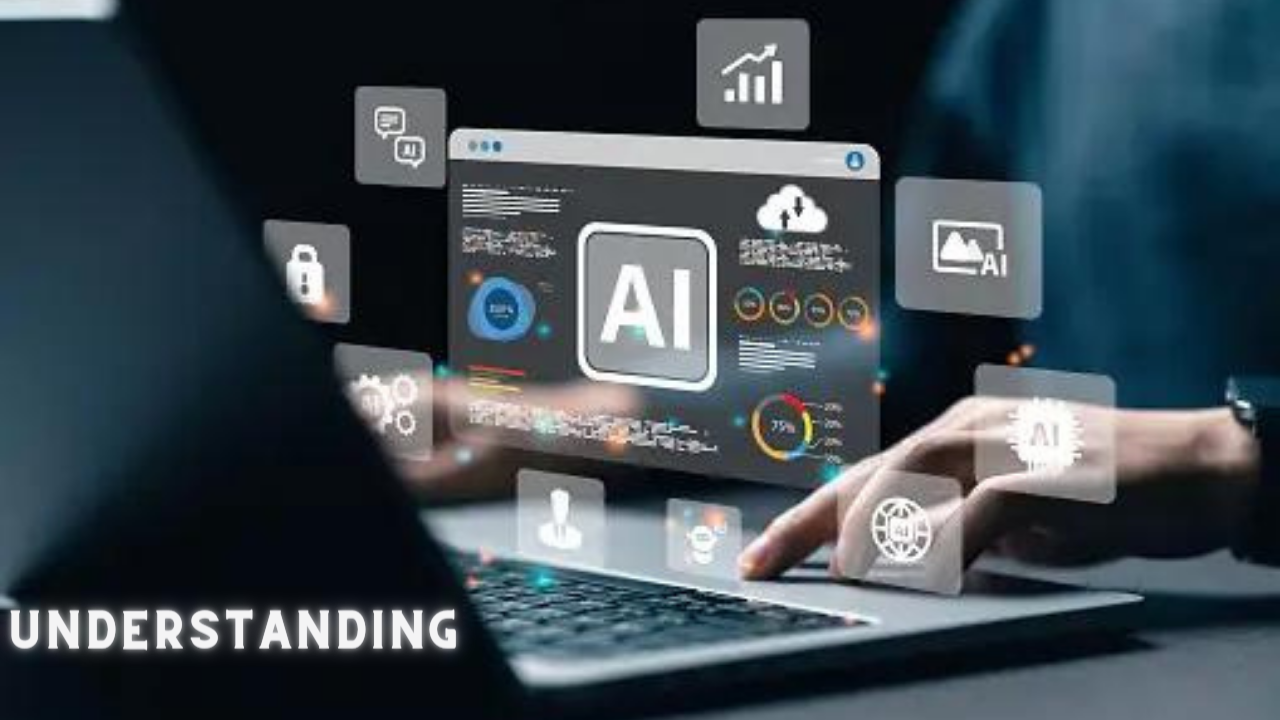Emerging technologies

Emerging technologies encompass advancements that are in the early stages of realization, with their practical applications still largely untapped. While these innovations may encompass both entirely novel concepts and repurposed older technologies, they collectively represent a shift in the technological landscape. Widely viewed as agents of change, emerging technologies have the potential to disrupt existing norms and establish new standards. Their transformative capacity is underscored by the anticipation of significant shifts in various spheres, indicating their ability to challenge and redefine the prevailing status quo.
History of Emerging Technology?

The evolution of technology mirrors humanity’s ongoing quest to innovate tools and methodologies. Ranging from rudimentary implements like stone tools to intricate advancements such as genetic engineering and information technology, technological progress shapes our world. The term “technology” originates from the Greek roots “techne,” meaning art and craft, and “logos,” referring to word and speech. Initially associated with applied arts, it now encompasses a broad spectrum of advancements influencing our environment. Through the acquisition of new knowledge, humans continuously create and refine tools, enabling scientific exploration beyond the limitations of our natural senses. This reciprocal relationship between science and technology intertwines technical history with the narrative of scientific discovery. Furthermore, technology’s utilization of resources binds its trajectory to economic history, as it both consumes and generates resources essential for everyday life. The transformative impact of technological innovation extends beyond the realm of economics, influencing cultural traditions and serving as a catalyst for societal progress. Not merely a driver of economic growth, technology emerges as a potent instrument for asserting economic, political, and military influence, contributing to the accumulation of wealth and power.
Examples of emerging technologies
Artificial intelligence

Artificial Intelligence (AI) is the development of computer systems that can perform tasks typically requiring human intelligence, such as learning from data, reasoning, understanding natural language, and recognizing patterns.
Robotics

Robotics is a multidisciplinary field involving the design, construction, operation, and use of robots. Robots are machines programmed to execute tasks autonomously or semi-autonomously, often in place of or in collaboration with humans. These tasks can range from simple actions like moving objects to complex activities such as surgical procedures or exploration in hazardous environments. Robotics draws upon principles from engineering, computer science, mathematics, and other disciplines to create and advance robotic systems capable of perception, decision-making, and physical interaction with the environment.
Top of Form
Quantum Computing:
Emerging technology utilizing quantum mechanics to perform computations at unprecedented speeds and solve complex problems beyond the capabilities of classical computers.
Gene Editing (CRISPR):

Revolutionary biotechnology enabling precise modification of genetic material, offering potential applications in healthcare, agriculture, and environmental conservation.
3D printing

3D printing, also known as additive manufacturing, is a process of creating three-dimensional objects by depositing successive layers of material, such as plastic, metal, or ceramics, based on a digital model. This technology allows for rapid prototyping, customization, and production of complex geometric shapes with high precision.
Emerging Technologies of 2024
As we step further into the 21st century, the rapid pace of technological advancement continues to redefine the boundaries of innovation. The year 2024 marks another milestone in this journey, with a plethora of emerging technologies poised to revolutionize industries, reshape societies, and unlock new frontiers of possibility. From artificial intelligence to biotechnology and beyond, let’s delve into the transformative technologies set to define the year ahead. you will learn best emerging technologies of 2024
1. Quantum Computing: Unleashing Unprecedented Computational Power
At the forefront of technological innovation stands quantum computing, a revolutionary paradigm that harnesses the principles of quantum mechanics to perform computations at unparalleled speeds. In 2024, quantum computing is poised to break new ground in fields such as cryptography, drug discovery, and optimization problems, unlocking solutions to complex challenges previously deemed insurmountable.
2. Biotechnology and CRISPR: Pioneering Precision Medicine
The convergence of biotechnology and CRISPR genome editing technology heralds a new era of precision medicine, where tailored treatments and therapies hold the promise of revolutionizing healthcare. In 2024, advancements in genetic engineering are poised to accelerate the development of personalized treatments for a myriad of diseases, from cancer to genetic disorders, ushering in a new age of medical innovation and patient care.
3. Metaverse and Virtual Reality: Redefining Digital Interaction
The concept of the metaverse, a collective virtual shared space, is set to take center stage in 2024, fueled by advancements in virtual reality (VR) technology and augmented reality (AR) experiences. As virtual worlds become increasingly immersive and interconnected, the metaverse holds the potential to transform how we work, play, and interact in the digital realm, blurring the lines between physical and virtual realities.
4. Sustainable Energy and Advanced Materials: Fostering a Greener Future
In the quest for environmental sustainability, emerging technologies in sustainable energy and advanced materials are poised to drive significant progress in 2024. From next-generation solar panels and energy storage solutions to breakthroughs in carbon capture and utilization, innovative technologies hold the key to mitigating climate change and transitioning towards a more sustainable future for generations to come.
5. Autonomous Vehicles and Transportation: Revolutionizing Mobility
The advent of autonomous vehicles and smart transportation systems is set to revolutionize mobility in 2024, offering safer, more efficient, and sustainable modes of transportation. With advancements in artificial intelligence, sensor technology, and connectivity, autonomous vehicles are poised to transform urban mobility, logistics, and public transportation networks, paving the way for a future of seamless, driverless travel.
Why AI is our Top Emerging Technology?
In a riveting discourse, Jan Murdoch, the esteemed technology innovation consultant at Defra, unveils the pivotal insights gleaned from our 2023 Emerging Technologies Radar. With fervor and conviction, Murdoch articulates the profound implications of emerging technologies on the formidable challenges and boundless opportunities confronting the Defra group. Emphasizing our paramount duty to champion environmental sustainability within the UK, Murdoch’s impassioned assessment heralds a new era of innovation-driven transformation. His discourse resonates with vigor, underscoring the imperative for proactive engagement and strategic foresight in harnessing the potential of these nascent technologies to propel Defra’s mission forward.

In the contemporary landscape, Artificial Intelligence (AI) is experiencing an unprecedented surge in attention and adoption, propelled by advancements that edge closer to the semblance of sentience. This burgeoning interest stems from discernible trends that serve as foundational elements shaping the integration of AI into corporate strategies. These trends, indispensable for companies incorporating AI into their initiatives, form the bedrock of innovation and competitiveness in today’s digital age. As organizations navigate this transformative terrain, understanding and leveraging these trends become imperative for staying abreast of market dynamics and capitalizing on the burgeoning opportunities presented by AI technology.
Understanding the AI Phenomenon
AI represents the pinnacle of human ingenuity, mimicking cognitive functions such as learning, reasoning, and problem-solving. Powered by advanced algorithms and vast datasets, AI systems possess the capacity to analyze complex data, derive insights, and make autonomous decisions with remarkable accuracy. This transformative capability has positioned AI as the cornerstone of innovation across diverse sectors, from healthcare and finance to manufacturing and retail.
The Driving Forces Behind AI’s Ascendancy
Several factors have converged to elevate AI to its current status as the premier emerging technology:
- Data Deluge: In the digital age, data has emerged as the new currency, fueling AI algorithms with the raw material needed to learn and evolve. The proliferation of connected devices and online platforms has resulted in an unprecedented deluge of data, providing fertile ground for AI-driven insights and predictions.
- Advancements in Computing Power: The exponential growth of computing power, coupled with the advent of cloud computing and parallel processing, has unlocked new frontiers in AI research and development. High-performance computing infrastructure empowers AI systems to process vast amounts of data in real-time, enabling rapid decision-making and actionable insights.
- Innovative Algorithms: Breakthroughs in machine learning, deep learning, and natural language processing have paved the way for AI systems to transcend previous limitations. These innovative algorithms empower AI to perform tasks once thought to be exclusive to human intelligence, such as image recognition, language translation, and sentiment analysis.
- Industry Adoption and Investment: Forward-thinking businesses are recognizing the transformative potential of AI and are increasingly investing in its adoption. From streamlining operations and enhancing customer experiences to unlocking new revenue streams, AI offers a multitude of benefits that are driving widespread adoption across industries.
The SEO Impact of AI Adoption
From an SEO perspective, integrating AI into digital marketing strategies can yield substantial benefits:
- Enhanced Personalization: AI-powered algorithms can analyze user behavior and preferences to deliver hyper-personalized content and recommendations, thereby improving user engagement and conversion rates.
- Predictive Analytics: By leveraging AI-driven predictive analytics, marketers can anticipate customer needs and behavior patterns, enabling more targeted and effective marketing campaigns.
- Content Optimization: AI tools can analyze content performance metrics and user feedback to optimize content for search engines, ensuring higher visibility and relevance in search results.
- Voice Search Optimization: With the proliferation of voice-enabled devices, AI-driven voice search optimization has become essential for businesses seeking to capitalize on this emerging trend and enhance their online presence.
Embracing the Future with AI
As AI continues to evolve and permeate every facet of our lives, businesses must embrace this transformative technology to stay competitive in a rapidly changing landscape. By harnessing the power of AI-driven insights and automation, organizations can unlock new opportunities for growth, innovation, and customer engagement. The journey towards AI integration may pose challenges, but the rewards far outweigh the risks, positioning forward-thinking businesses at the forefront of the digital revolution.
The advancing field of AI image generation is truly a blend of art and science, harnessing complex algorithms and neural networks to create visual content. Here’s a closer look into this transformative technology.
In conclusion, AI has rightfully earned its place as the top emerging technology, driven by unprecedented advancements and widespread industry adoption. By embracing AI, businesses can unlock a world of possibilities, revolutionizing their operations, and staying ahead of the curve in an increasingly digital-centric world. As we stand on the cusp of a new era defined by AI, the possibilities are limitless, and the future is brimming with promise for those bold enough to seize it.


